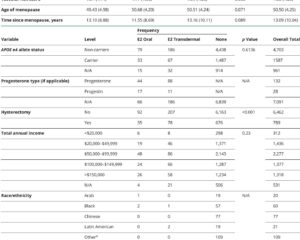Introduction
Hidradenitis suppurativa (HS) is a chronic inflammatory skin condition characterized by painful nodules, abscesses, and sinus tracts, commonly located in areas with apocrine sweat glands such as the underarms and groin. Beyond its physical manifestations, HS substantially impacts patient quality of life and has been linked with increased psychological distress. Depression and anxiety are common mental health conditions that can worsen the burden of chronic illnesses. Although patients with HS have been recognized to carry a higher risk of depression and anxiety, it remains unclear whether the severity of HS independently influences the risk of these psychiatric conditions.
Study Objective
This population-based cohort study aimed to assess the risk of new-onset and recurrent depression and anxiety among patients with HS compared to the background population. Additionally, the study explored whether HS disease severity, inferred from treatment types and HS-related surgical interventions, is associated with differences in mental health risk.
Study Design and Population
The study analyzed Danish national registry data from 1997 through 2022, including 10,206 patients diagnosed with HS confirmed through hospital diagnosis records. Each HS patient was matched by age and sex to four controls without HS, totaling 40,125 controls. The mean age was 38 years, and approximately 70% of the cohort were female, reflecting the higher prevalence of HS in women. Data analyses were conducted between July 2024 and May 2025.
Exposure and Outcomes
Exposure was defined as a hospital-confirmed diagnosis of HS. The primary outcomes were the first diagnosis of depression or anxiety occurring after the index date (the date of HS diagnosis for cases and a matched date for controls). The study separately assessed new-onset depression and anxiety, as well as recurrence of these conditions for those with a prior history.
Defining Disease Severity
Severity of HS was categorized based on treatments received and the number of hospitalizations for HS-related surgical procedures. Treatment groups included topical therapies only, systemic non-biologic therapies, biologics, or no HS-related treatment. Surgical hospitalizations were grouped as none, one, two, or three or more procedures. These categories served as proxies for disease severity, recognizing that more aggressive treatment or repeated surgeries indicate more severe or refractory HS.
Data Analysis
Incident rates (IRs) and hazard ratios (HRs) were calculated using Cox proportional hazards models, adjusted for demographic variables, socioeconomic status, and comorbidities such as other chronic diseases. These adjustments ensured that the association between HS and psychiatric outcomes was not confounded by these factors.
Key Findings
Patients with HS demonstrated a substantially higher risk of new-onset depression (HR 1.69; 95% CI 1.57-1.81; p < .001) and anxiety (HR 1.48; 95% CI 1.38-1.56; p < .001) compared with matched controls. When stratified by treatment modality as a surrogate for disease severity:
- Topical-only treatment group showed an HR of 1.62 (95% CI 1.41-1.85) for either depression or anxiety.
- Systemic non-biologic treatment group had an HR of 1.61 (95% CI 1.51-1.72).
- Biologic therapy patients had a somewhat lower HR of 1.38 (95% CI 1.01-1.87), though still elevated.
Considering surgical hospitalization as a marker of severity:
- No hospitalizations: HR 1.44 (95% CI 1.36-1.53).
- One hospitalization: HR 1.66 (95% CI 1.53-2.17).
- Two hospitalizations: HR 1.59 (95% CI 1.33-1.90).
- Three or more hospitalizations: HR 1.60 (95% CI 1.40-1.85).
The prevalence of prior history of depression (7.0% versus 0.3%) and anxiety (5.9% versus 0.5%) was significantly higher in HS patients than controls (p < .001 for both). However, no significant differences were found in the risk of recurrent depression (HR 0.90; 95% CI 0.62-1.28; p = .55) or anxiety (HR 1.22; 95% CI 0.89-1.66; p = .22) in those with existing histories of these disorders.
Clinical Interpretation
The study confirms that individuals with HS are at a notably increased risk of developing depression and anxiety for the first time after diagnosis. Surprisingly, this risk did not significantly vary across markers of HS severity, such as treatment complexity or surgical interventions, suggesting that mental health risk is elevated irrespective of how severe the skin disease appears clinically.
This finding underlines the importance of universal mental health screening and psychiatric evaluation for all patients with HS, regardless of their disease severity category. Early identification and intervention may improve quality of life and overall management outcomes.
Treatment Overview and Psychological Impact
HS treatment ranges from topical antibiotics and antiseptics for mild disease to systemic therapies including antibiotics, retinoids, hormone modulators, and immunosuppressants for moderate to severe cases, with biologics targeting inflammatory pathways for refractory disease. Surgical interventions often address severe or unresponsive lesions.
Living with HS can be physically painful, socially isolating, and psychologically draining due to visible lesions, malodor, and chronicity, factors that contribute to elevated risks of psychiatric distress. Patient-centered care incorporating dermatologic and psychological support is essential.
Limitations and Future Directions
While the study robustly leverages a large national registry with comprehensive data, certain limitations exist. The proxy measures for severity based on treatment and hospitalization may not capture all nuances of disease activity. Also, psychiatric diagnoses depend on clinical coding recorded in hospital data, potentially missing milder or undiagnosed cases.
Future research should explore mechanisms linking HS and mood disorders, including inflammation pathways and psychosocial stressors, and evaluate integrated care models. Additionally, studies assessing the impact of HS treatment on mental health outcomes would be valuable.
Conclusion
Patients with hidradenitis suppurativa have a significantly increased risk of developing new-onset depression and anxiety, independent of disease severity as measured by treatment and surgical intervention. These findings highlight the necessity for mental health screening and interventions for all individuals with HS to address the substantial burden of psychological comorbidities in this chronic dermatological disorder.
References
Holgersen N, Rosenø NAL, Nielsen VW, et al. Risk of New-Onset and Recurrent Depression and Anxiety Among Patients With Hidradenitis Suppurativa. JAMA Dermatol. Published online July 30, 2025. doi:10.1001/jamadermatol.2025.2298



